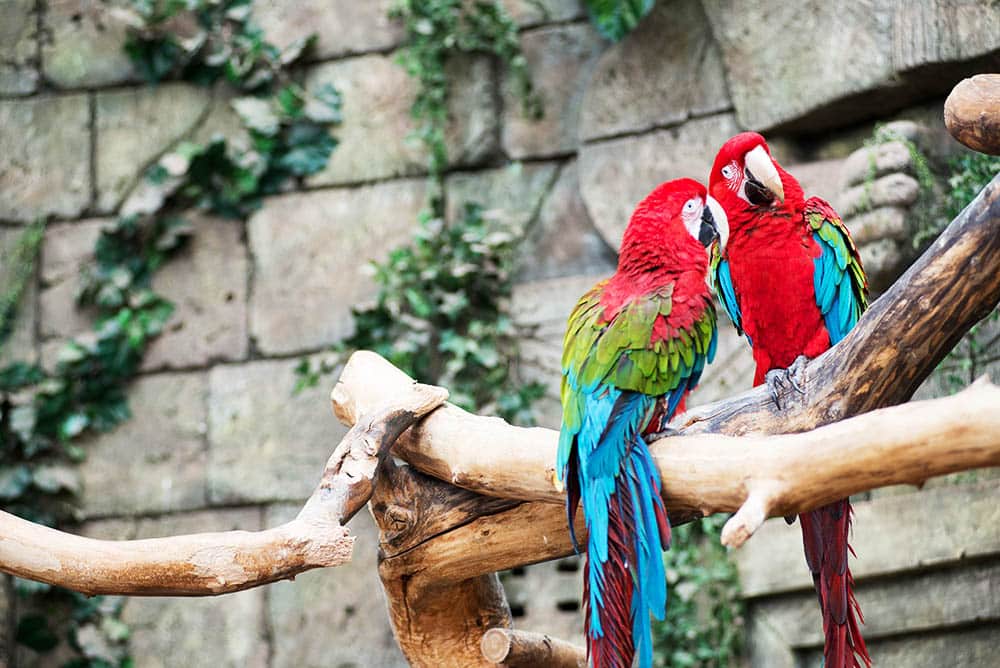The Importance of Zoos in Education, Conservation, and the Protection of Endangered Species
Zoos have been around for centuries, with the first being founded in 1752 in Vienna, Austria. Over the years, zoos have become popular attractions, with millions of people visiting them annually. However, recently, there has been a heated debate on whether zoos should exist or not. Some people believe they are cruel and unethical, while others argue that they are essential for education, conservation, and the protection of endangered species. This article will explore the importance of zoos in education, conservation, and the protection of endangered species.
Education
One of the primary functions of zoos is to educate the public about animals and their habitats. Zoos provide a unique opportunity for people to see and learn about a wide variety of animals up close, including those that are rare or endangered. They also offer an opportunity for children to learn about biology and animal behavior, fostering an interest in the natural world.
Through interactive exhibits, tours, and presentations, zoos can provide a wealth of information on animal adaptations, conservation, and environmental issues. They also play a crucial role in educating the public about threatened and endangered species and the challenges they face in the wild. For example, visitors can learn about the threats to African elephants, such as habitat loss and poaching, and the conservation efforts being made to protect them.
Moreover, zoos often have on-staff scientists and conservationists, who conduct research and contribute to the advancement of knowledge about animal biology and behavior. Through exhibits and presentations, these professionals can share their findings with the public, fostering an interest in scientific research and environmental conservation.
Conservation
Zoos, aquariums, and wildlife parks provide a critical service in the conservation of threatened and endangered species. Many of the animals housed in zoos are part of breeding programs designed to increase the genetic diversity of captive populations. These breeding programs are undertaken in coordination with other zoos and conservation organizations worldwide, and aim to help increase the wild populations of endangered species.
Using these captive populations, zoo breeding programs can reintroduce animals into the wild, improving the chances of species survival. For example, the California Condor, one of the world’s most endangered birds, has been successfully reintroduced into the wild after being bred in captivity. Similarly, the black-footed ferret, once extinct in the wild, has been successfully reintroduced after being bred in captive populations.
Moreover, zoos often conduct research and conservation projects around the world. For example, many zoos work to protect sea turtles by conducting research on nesting and hatching behavior, educating local communities, and reducing threats to their survival. By partnering with local organizations and governments, zoos can make a significant contribution to the conservation of threatened and endangered species and their habitats.
Protection of Endangered Species
Zoos play a crucial role in protecting animals from extinction caused by habitat loss and poaching. Many zoos provide a refuge for animals rescued from the wild, often due to injury or habitat destruction. Zoos can provide these animals with care and rehabilitation, ensuring they recover and are well cared for.
Moreover, zoos can offer a safe haven for endangered animals. By breeding and reintroducing animals into the wild, zoos can help promote the conservation of endangered species. Additionally, zoos can collaborate with conservation organizations to raise awareness of the issues facing endangered species, such as habitat destruction and poaching, and work to reduce these threats.
Animal Welfare
Despite the benefits of zoos, there have been concerns about animal welfare in captivity. For example, critics argue that animals in zoos are deprived of their natural habitats and behavioral patterns, leading to poor physical and psychological health. Moreover, there is a risk of mistreatment, such as neglect, physical abuse, and inadequate care.
To address these concerns, many zoos have taken steps to ensure the welfare of the animals in their care. For example, they provide enrichment activities, such as puzzles and toys, to keep animals engaged and active. They also create enclosures that mimic the animals’ natural habitats, providing the animals with the space, shelter, and access to food and water that they need.
Furthermore, zoos adhere to strict standards set forth by various organizations, such as the Association of Zoos and Aquariums and the World Association of Zoos and Aquariums. These standards cover a wide range of issues, such as animal welfare, veterinary care, and conservation efforts. By adhering to these standards, zoos can ensure that their animals are well cared for and healthy.
In Conclusion
Zoos are essential for education, conservation, and the protection of endangered species. They provide a unique opportunity for people to learn about and connect with the natural world, inspiring an interest in the environment and conservation. Moreover, they play a crucial role in breeding endangered species and reintroducing them into the wild, contributing to conservation efforts worldwide.
Despite concerns about animal welfare, many zoos have taken steps to ensure the well-being of the animals in their care, adhering to strict standards set forth by various organizations. Through their educational programs, research, and conservation efforts, zoos demonstrate their commitment to the environment and the welfare of the animals in their care.
- 5 Reasons Why Outdoor Play is Essential for Your Child’s Development - 28 de mayo de 2023
- Say Goodbye to Diaper Dilemmas: Why Cloth Diapers are the Best Choice for Your Baby and the Planet - 28 de mayo de 2023
- Why Investing in Pediatrics is the Key to a Healthier Future for Our Children - 28 de mayo de 2023



